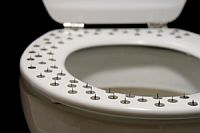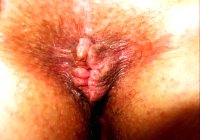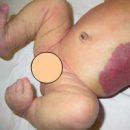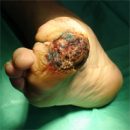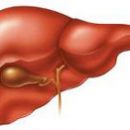The syndrome of irritated colon, the treatment and diagnosis of which is based on the assessment of clinical symptoms, involves the use of a number of drugs. Today we talk about them.
Content
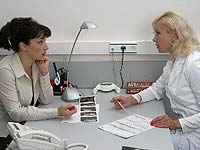 Diagnosis, therapy, as well as recommendations for the treatment of colon syndrome, are a difficult task consisting of a complex of medical and preventive measures aimed at eliminating diverse factors that contribute to the occurrence of intestinal dysfunction. Currently, there is no uniform effective therapeutic scheme in the approach to the treatment of this syndrome, the appointment is carried out purely individually depending on the clinical version of the disease, and only after a comprehensive examination and excluding the organic pathology of the gastrointestinal tract. Patient management with such syndrome requires significant patience and medical mastery, since an important key point in achieving the desired effect is the patient's training to the skills of using drugs in the presence of one or another form of dysfunction of a large intestine. In some cases, it is enough to change the edible diet and dietary preferences, however, in situations, when this is not enough, drug therapy is recommended.
Diagnosis, therapy, as well as recommendations for the treatment of colon syndrome, are a difficult task consisting of a complex of medical and preventive measures aimed at eliminating diverse factors that contribute to the occurrence of intestinal dysfunction. Currently, there is no uniform effective therapeutic scheme in the approach to the treatment of this syndrome, the appointment is carried out purely individually depending on the clinical version of the disease, and only after a comprehensive examination and excluding the organic pathology of the gastrointestinal tract. Patient management with such syndrome requires significant patience and medical mastery, since an important key point in achieving the desired effect is the patient's training to the skills of using drugs in the presence of one or another form of dysfunction of a large intestine. In some cases, it is enough to change the edible diet and dietary preferences, however, in situations, when this is not enough, drug therapy is recommended.
Syndrome of irritated colon: antispasmodics treatment
Most often to reduce pain syndrome and the degree of gas formation, drugs from the group of spasmolitics are used. One of the representatives of this line of drugs is the drug Duspatalin, a myotropic spasmolitic with a selective impact on a smooth muscles, which normalizes the motorcycle of the gastrointestinal tract 15-20 minutes after admission. In addition, traditionally used drugs are papaverin, but-shpa, Galidor.
A significant clinical effect is noted when using the preparation of buckopane, which also has antispasmodic activity and improves the promotion of the intestinal mass. Against the background of taking this medication, side effects in the form of a spasmodation spasmodation, tachycardia, an increase in blood pressure have a rather weak manifestation. The formation of resistant forms of irritable intestinal syndrome and the development of stubborn constipation implies the appointment of cisaprice.
In case the diet of the patient is oversaturated by the balanced substances, the use of osmotic laxatives is recommended, among which the positive clinical effect has lactulose, macrogol. The predominance of constipation clinics dictates the need to refrain from the use of cleansing enema that exciting parasympathetic receptors, contribute to the increase in pressure in the lower sector of the colon, reinforcing pain and spasms.
 In the development of irritable intestinal syndrome, treatment of a form with a predominance of diarrhea, assumes the purpose of Loperamide. This drug significantly slows down the advancement of the intestinal masses and active abbreviations of the intestinal wall, which reduces the number of acts of defecation, fixes the carte masses and prevents the loss of important trace elements. Loperamide weakens the susceptibility of the colon wall to stretching, which reduces pain and spasms. The use of the drug is recommended in a lingual form, a sinking tablet under the tongue can be achieved quick effect. Additionally, enveloped means are prescribed, for example, dermatol, symmetics, white clay.
In the development of irritable intestinal syndrome, treatment of a form with a predominance of diarrhea, assumes the purpose of Loperamide. This drug significantly slows down the advancement of the intestinal masses and active abbreviations of the intestinal wall, which reduces the number of acts of defecation, fixes the carte masses and prevents the loss of important trace elements. Loperamide weakens the susceptibility of the colon wall to stretching, which reduces pain and spasms. The use of the drug is recommended in a lingual form, a sinking tablet under the tongue can be achieved quick effect. Additionally, enveloped means are prescribed, for example, dermatol, symmetics, white clay.
In the treatment of patients with irritable intestinal syndrome, it is recommended to refrain from taking antibacterial agents. This is due to the fact that antibiotics, affecting the mucous membrane of the digestive tract, aggravate the manifestations of intestinal dysbiosis, which affects the amplification of pain syndrome and the general deterioration of well-being.
Many gastroenterologists consider it necessary to include in complex therapy of drugs from a group of antidepressants and tranquilizers who have the ability to improve the mood and promote rapid recovery.
Thus, the timely detection of the motor dysfunction of the gastrointestinal tract, in particular the colon, with the help of special methods of instrumental diagnostics and the use of a complex of drugs that normalize the operation of the intestinal wall can significantly improve the results of the treatment of patients with irritable colon syndrome.



